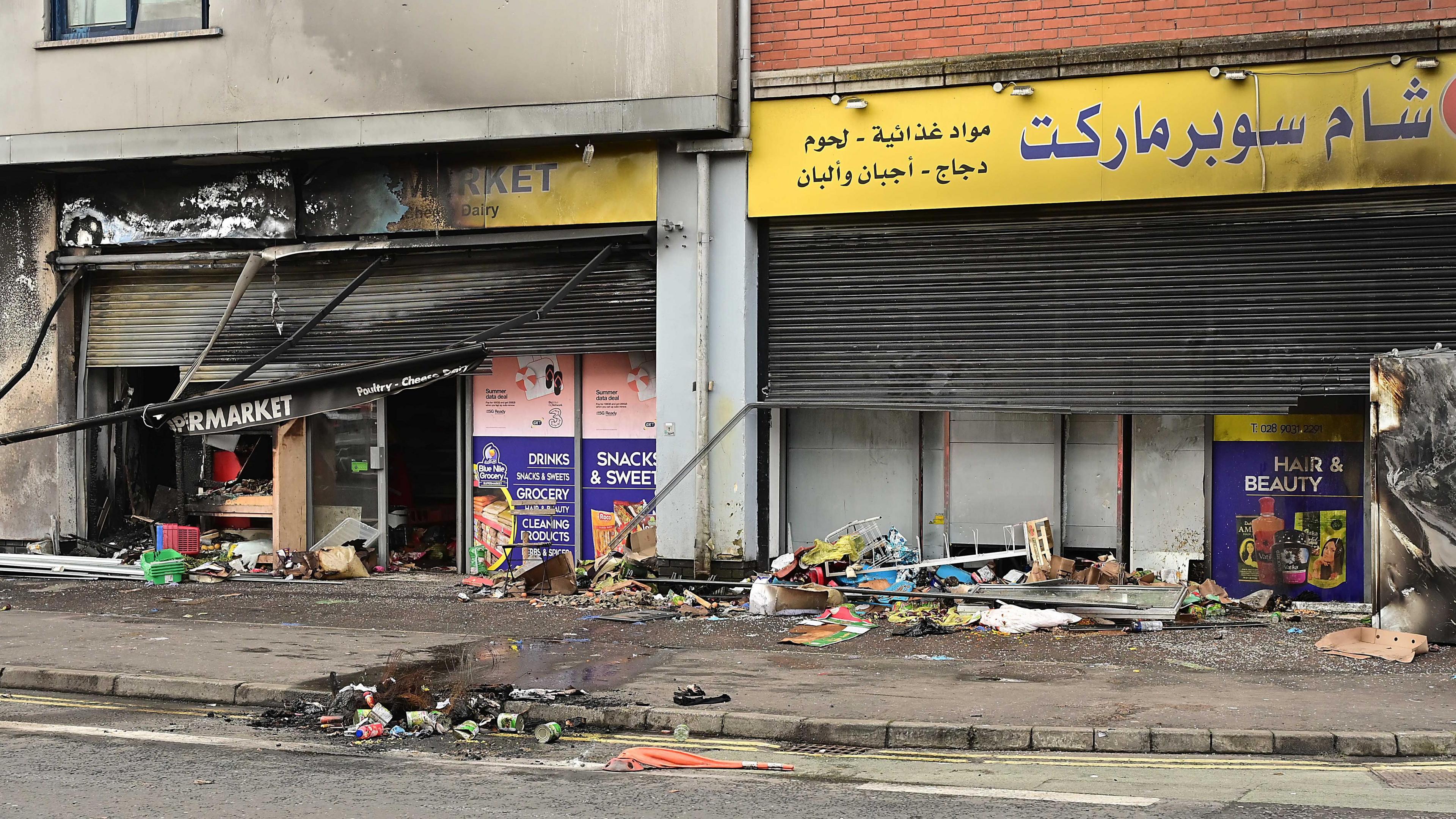Race hate crime at 'shameful' record level in Northern Ireland
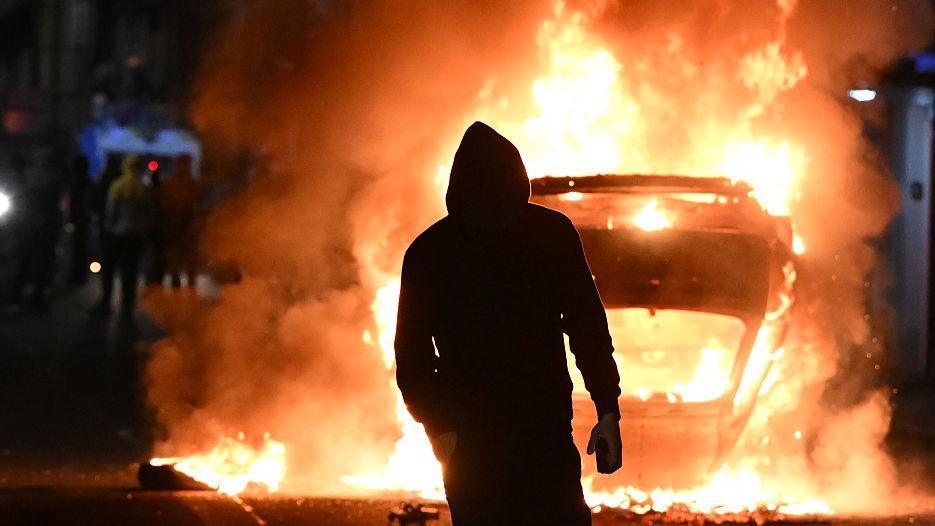
Cars were set on fire during violence linked to protests over immigration in Ballymena in June
- Published
Race hate crime is at a record level in Northern Ireland, new data released from the Police Service of Northern Ireland (PSNI) shows.
In the 12 months to the end of June, there were 1,329 crimes with a race motivation.
This is up by 434 year-on-year and is the highest figure since records began in 2004.
Responding to the new data, Amnesty International said: "This has been a year of hate and fear in Northern Ireland and a shameful new record."
The figures include two cycles of street disorder in Belfast and Ballymena linked to protests over immigration.
The number of racially-motivated incidents over the period has also risen sharply to 2,049.
Around half the incidents occurred in the Belfast City Council area.
For the previous 12 months, the figure was 1,403.
In contrast, crimes and incidents linked to sectarianism show little change.
The number of sectarian crimes was recorded as 611.
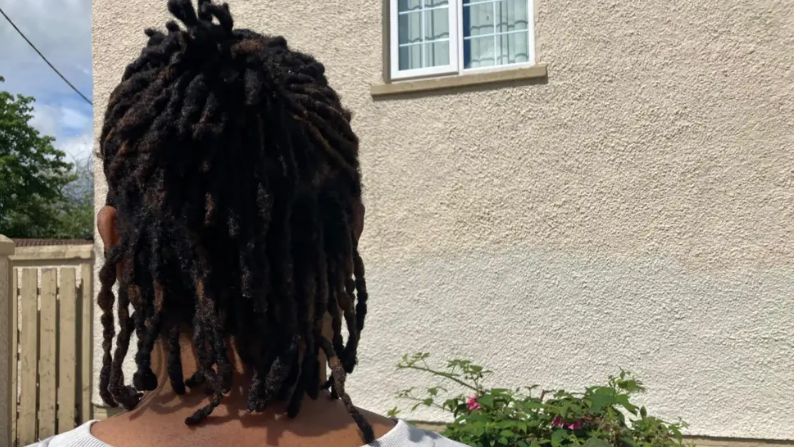
Uche Ukeje says her daughters want to leave Strabane after their home was daubed with racist graffiti in July
Nigerian woman Uche Ukeje lives in Strabane with her two daughters, aged 14 and 24.
Their home in the Ballycolman estate was sprayed with racist graffiti in July, including the words "immigrants out".
The police are treating it as a racially-motivated hate crime.
At the time, the family decided to stay after neighbours and the wider community rallied round.
But Uche told BBC Radio Foyle's North West Today programme her daughters were still frightened and she was now thinking of leaving Strabane for good, for their sake.
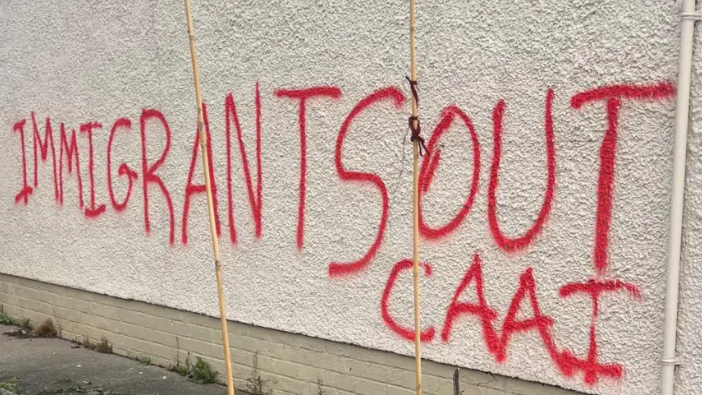
This graffiti was sprayed on Uche Ukeje's home in July
She said she has good neighbours and would love to stay but the incident is still affecting her daughters.
"I got a lot of support from the community," she said, "but the younger one especially is too frightened, most of the time in the night she's awake.
"I'm trying to persuade her but she's no longer happy staying there.
"They don't feel safe staying here any more."
Ms Ukeje said she was now considering moving to Belfast or London, her daughters' preferred option.
Bulgarian mother of two leaving Ballymena 'to save my children'
- Published11 June
Police condemn violence and disorder on streets of Belfast
- Published4 August 2024
Patrick Corrigan, Amnesty's Northern Ireland director, said: "Behind these figures are real people, real families, living in terror simply because of the colour of their skin or where they come from.
"This hasn't happened in a vacuum.
"This has been a crisis developing for years, fuelled by complacency and inaction."
He called on the Northern Ireland Executive to show "decisive leadership" and deliver a new anti-racism strategy.
- Published11 June
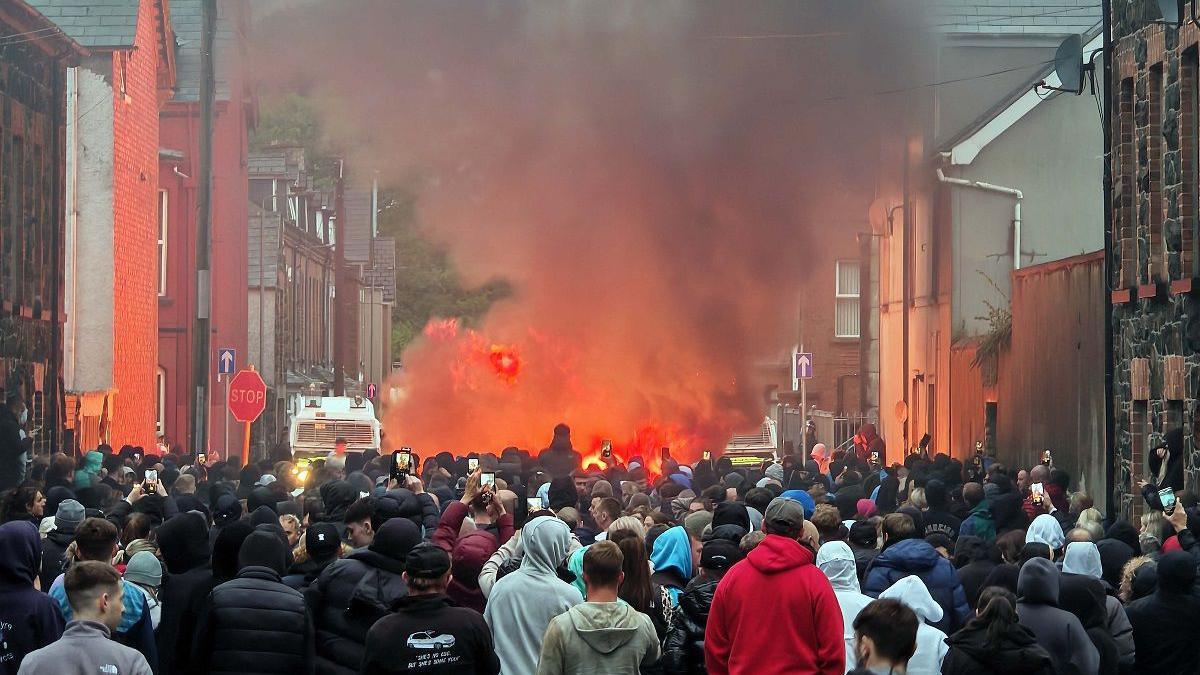
- Published12 June
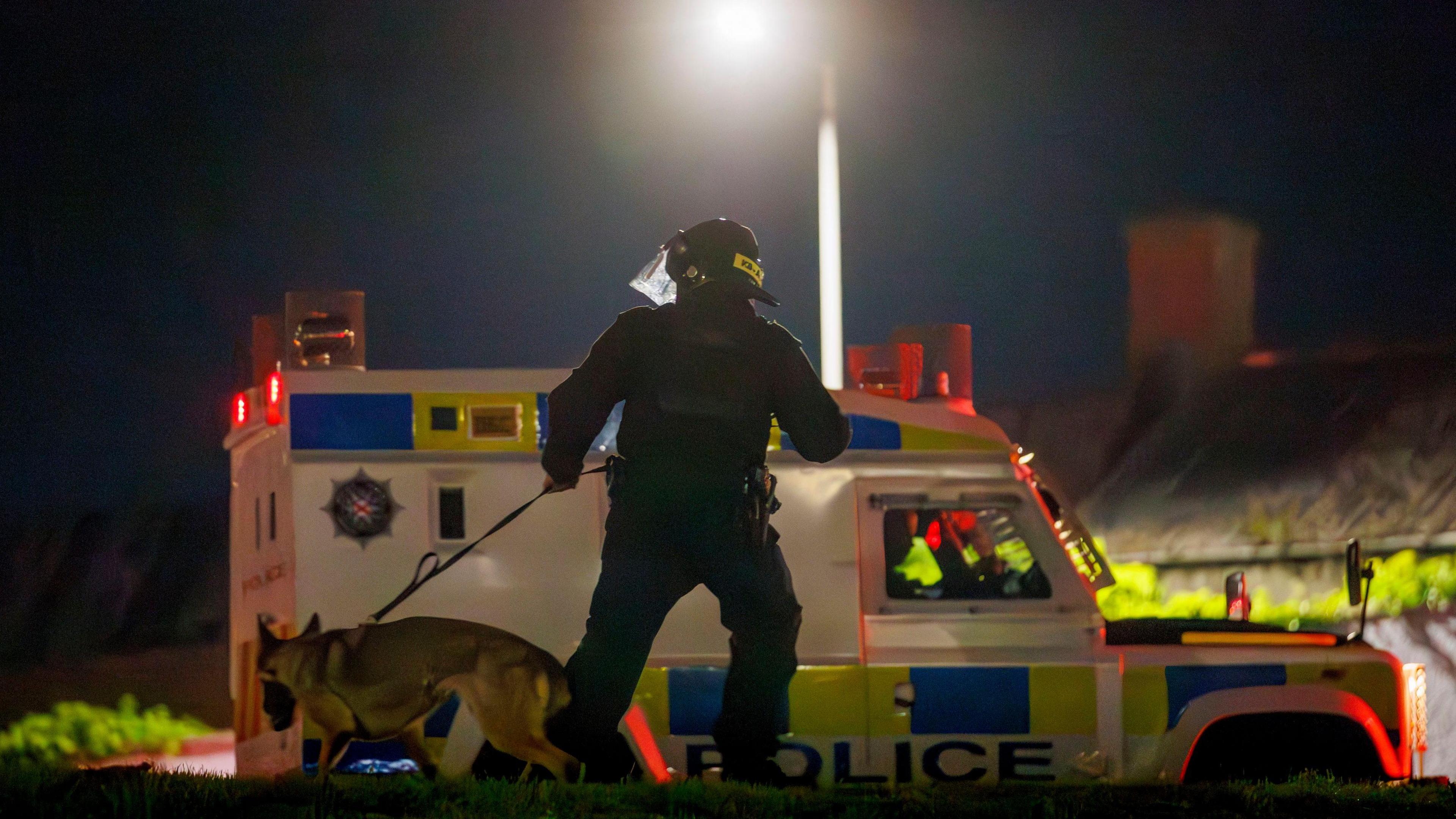
- Published10 August 2024
